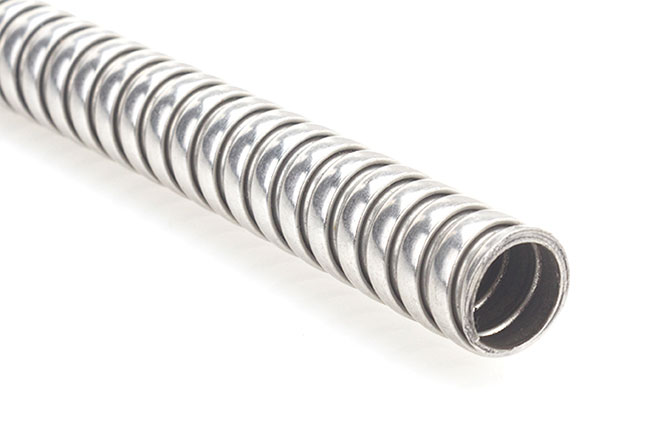Mar. 14, 2019
The most common application for flexible conduit - if it's metallic or non-metallic - if for short length, say up to 1m,from a solid conduit terminal box to an adjacent motor which is subject to movement and vibration. But sometimes Flexible Metal Conduit can be used for more runs, like in places where it's unsuitable or difficult to utilize rigid conduit. This might be the situation where, as an instance, the walls are irregular or the conduit should run across lots of barriers like brick pillars.
Flexible metal conduit is generally considered easier to work with than rigid metal conduit due to its flexibility.
Flexible Stainless Steel Conduits are manufactured to BS EN 61386-23 in Galvanized or stainless steel. They are commonly available in sizes from 20mm to 50mm and with a range of coverings, such as a PVC over sheath, a low fire hazard coating and a braided steel covering. The braided steel covering provides EMC screening. In addition, a range of metal glands and other accessories are available.

Flexible Metal Conduit Manufacturer said As with all wiring systems, flexible metal conduit must be suitable for the external influences present. It is manufactured with a range of ingress protection ratings, such as IP 40, IP 55 and IP 65. It must be correctly installed and adequately supported throughout its length.















